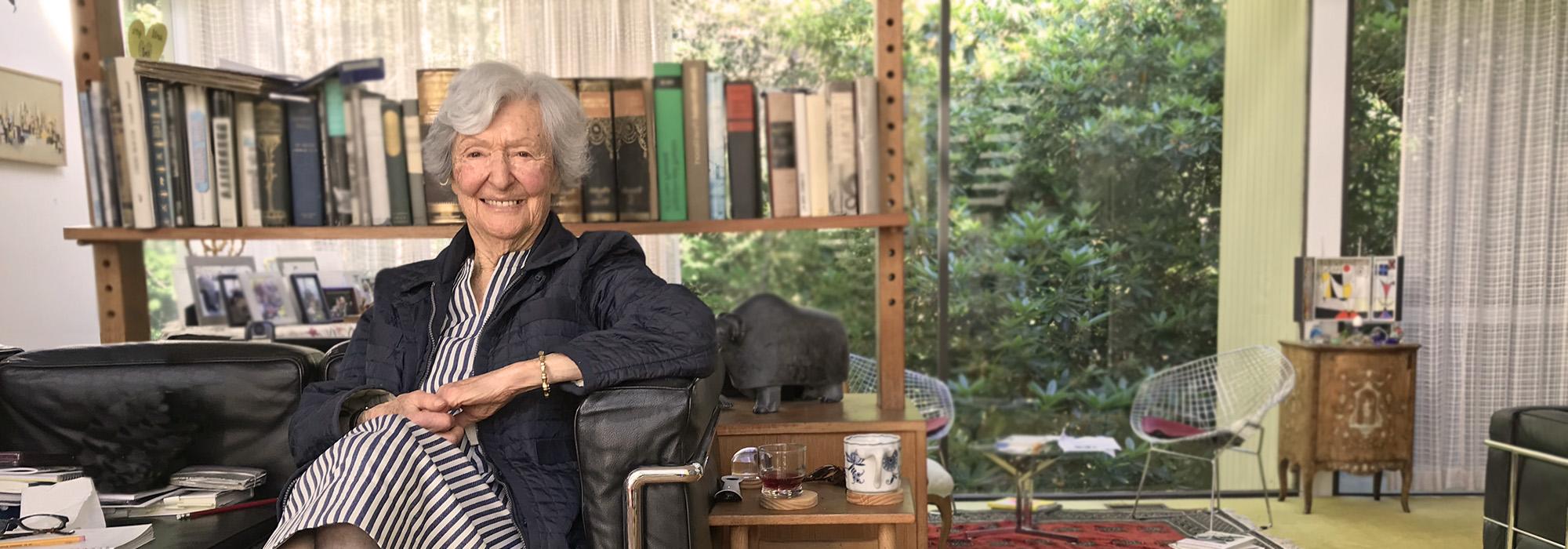The 2025 Oberlander Prize Jury
The seven members of the 2025 Cornelia Hahn Oberlander International Landscape Architecture Prize jury include leading landscape architects, urban planners, architects, academics, and other experts from around the world.
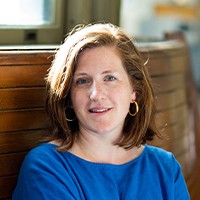
Claire Agre (Jury Chair) is a Partner and Cofounder of Unknown Studio Landscape Architecture & Urban Design, based in Baltimore, Maryland, U.S. Prior to that she was a Principal in the New York City officie of the Rotterdam, Netherlands-based West 8 urban design and landscape architecture firm. Broadening landscape practice with a background in painting and ecology, her work puts physical and social connectivity at the forefront.
Agre has led design and implementation for a diverse portfolio of projects, including: Governors Island (New York, N.Y., U.S.), Druid Lake (Baltimore, MD, U.S.), North Meadow on the Rose Kennedy Greenway (Boston, MA, U.S.), the internationally-renowned Harborplace (Baltimore, MD, U.S.), Portland Museum of Art (Portland, Location), multiple plans for Longwood Gardens and its award-winning Main Fountain Garden Revitalization (Kennett Square, PA, U.S.), The Nasher Haemisegger Family Sculpture Garden at Duke University (Durham, N.C., U.S.), planning at The Land and Garden Preserve on Mount Desert Island, Maine; Naples Botanical Garden (Naples, FL, U.S.), Houston Botanic Garden (Houston, TX, U.S.), and at the largest scale, the winning entry for Changing Course—an interdisciplinary, international design competition seeking solutions for the disappearing Lower Mississippi Delta.
She turned to landscape architecture after studying tropical ecology at the Roberto Burle Marx-designed Wilson Botanical Garden and Las Cruces Research Station (Costa Rica). Her experience there instilled a belief that landscape design is uniquely suited to bridge the gap between the sciences, the humanities, the collective, and the individual. Over nearly twenty years, Claire has emerged as a national leader across the field. Agre considers stewardship of place to be a moral imperative; her work links beauty, care, and collective action, leaving our world better than we found it.
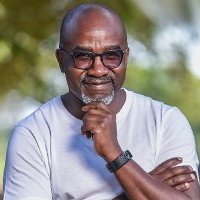
Arthur Adeya is a co-founder of Kounkuey Design Initiative (KDI) and serves as Treasurer to the KDI Kenya Board in Nairobi, Kenya. He is the Technical Director and Director of Projects at CentumRE. Prior to this role, he worked in various architectural firms in the U.S. and Kenya. Arthur is a lecturer at Jomo Kenyatta University of Agriculture and Technology (JKUAT). He is a graduate of the University of Nairobi (BArch, Architecture) and the Harvard University Graduate School of Design (MLA, Landscape Architecture).
Adeya is passionate about sketching, especially urban sketching from life to capture the invisible social cultural building blocks of Nairobi’s urban structure. The knowledge has helped him navigate three major concerns in his professional life: supporting the transformation of unsafe and under-used sites into “productive public spaces” with KDI; teaching a landscape engineering studio at JKUAT; and, working with a large corporate real estate developer, CentumRE, where he drove the planning and design of their affordable housing projects. Adeya has also been a Principal Partner at Lexicon + ion, in Nairobi, in charge of master planning, landscape architecture and urban design.
KDI was founded in 2006 by Adeya and several other students at Harvard spurred by the question “How could they harness their skills to combat issues such as poverty, environmental degradation, and social isolation?” In Nairobi, they began working with residents of an informal settlement called Kibera. KDI works with local residents to transform unsafe and under-used sites into “productive public spaces.” From permanent parks to temporary vacant lot activations, each space integrates key amenities such as community buildings, water and sanitation facilities, green infrastructure, and open spaces for recreation and exercise.
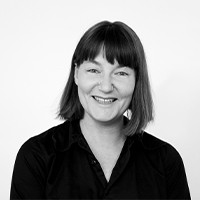
Kirsten Bauer is the Global Design Director of ASPECT Studios, an international urban design, landscape architecture, living architecture, and wayfinding design practice in Melbourne, Australia. ASPECT Studios has received international awards for its design excellence, creativity, and city-shaping projects, with a particular focus on public landscapes.
Bauer is a respected and award-winning design leader with 30 years of expertise in public realm and infrastructure strategy and design across Australia and internationally. Ideas, design, and “publicness” are fundamental to her thinking, and she regularly lectures at universities and industry events globally on ASPECT's projects and public spaces. She actively visits design projects worldwide to gain deeper insight into contemporary practice.
Bauer is a member of several Australian government industry-appointed design review panels and committees, and a long-standing juror and practice advisor to the University of Melbourne and RMIT University, where she also holds an Adjunct Professorship.
Bauer was a member of the inaugural Birrarung Council (a bi-cultural council), formed by the Yarra River Protection Act, and the one of the protagonists of the recent Birrarung Exhibition, which showcased eight landscape architecture practices at the National Gallery of Victoria. She also served as co-Creative Director of the 2019 International Festival of Landscape Architecture and the Future Park Competition.
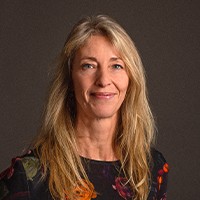
Ellen Braae has been a full professor of landscape architecture and urbanism at the University of Copenhagen, Denmark since 2009. She has taught at Aalborg University, the Aarhus School of Architecture and she has been visiting professor at the Oslo School of Architecture, Norway and Delft University of Technology, The Netherlands. Braae has published extensively on landscape transformation in theory and practice, spanning from commons, postindustrial landscapes to the postwar welfare landscape. She has authored/edited the books: Landscape and Welfare (forthcoming); Architecture and Welfare, Scandinavian Perspectives (2025) edited with Arrhenius and Ruud; Urban Planning in the Nordic World (2022); Routledge Research Companion to Landscape Architecture (2018) edited with Steiner; and Beauty Redeemed, Recycling Post-Industrial Landscapes (2015). More recently, Braae’s research has focused on regenerative landscape futures. Braae has served on numerous boards and juries including chairing the Danish Arts Foundation · Architecture, a member of the expert committee to prepare a new architecture policy, a member of the Danish Independent Research Foundation for Culture and Communication; and she has practiced at Schonherr. In addition, Braae runs a micro, con-amore publishing house, Ikaros Press, publishing the Landscape Manifesto Book Series. She holds her MSc and PhD degrees from the Aarhus School of Architecture, Denmark.
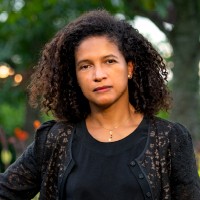
Margarita Jover is a Professor of Architecture at Tulane University (New Orleans, LA, U.S.), co-director of the dual Master of Landscape Architecture and Engineering program, and co-founder of aldayjover, architecture and landscape in Barcelona, Spain. Before joining Tulane, Professor Jover was at the University of Virginia. She is co-editor of the book Ecologies of Prosperity for the Living City (ORO Editors, 2019), and the monographs The Water Park (ACTAR, 2008) and Cities & Rivers (ACTAR, 2024). Professor Jover has been jury of honor awards such as the 'FAD Award' or the 'Mies van der Rohe European Union Prize for Architecture,' and of international competitions such as the Glories Square in Barcelona and the Hainan Eco-Island in China.
aldayjover architecture and landscape, with offices in Barcelona and New Orleans, is led by Iñaki Alday, Margarita Jover, Jesús Arcos, and Francisco Mesonero. aldayjover is a multidisciplinary research-based practice, focused on innovation and the specific character of places. The work is renowned for its leadership in a new approach to the relationship between cities and rivers. aldayjover has designed the most significant recent public spaces in Spain: Sagrera Park or The Green Diagonal (Barcelona); Water Park, Tramway (Zaragoza); Aranzadi Park (Pamplona); and Vara de Rei (Ibiza); together with infrastructural buildings (cultural center, theater, sports hall, powerplant) and housing.
The firm has received awards including: the European Urban Public Space Prize (2002); the FAD Prize for City and Landscape (2009); the Prize for International Urban Integration ATP (2011); and finalist at the International and European Landscape Architecture Biennales Prizes (2008 and 2013), the Ibero-American Architecture Biennale (2004), and nomination for the European Union Architecture Prize-Mies van der Rohe Award (2009).
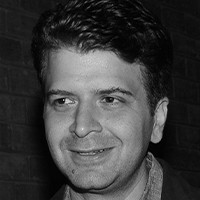
Sameep Padora is an architect and author. Born in Chamba, Northern India, Padora established his eponymous Mumbai-based practice in 2007 after graduating from the Harvard University Graduate School of Design. The studio’s work has been widely published and has in the past received the Wallpaper Design Award for Best Public Building, Beazley Architecture Prize, Wienerberger Brick Award, Archdaily Building of The Year, Wallpaper Design Award for House of the Year, as well as the Architectural Review’s Emerging Architecture and the AR Library Commendation Awards.
Besides the architectural practice, Padora also runs the not-for-profit, sPare, that researches issues of urbanization in India with a focus on housing. sPare’s research publications In the Name of Housing, How to build an Indian House, and (de)Coding Mumbai attempt to unravel the production of affordable housing in Indian cities.
Padora has presented the studio’s projects and built work at numerous forums including the Buenos Aires, Seoul & Venice Biennales and at various universities including three U.S.-based universities – Harvard, Cooper Union, and Cornell – and Delft University of Technology, The Netherlands, among others. Sameep serves on the academic boards of a number of educational institutes and is currently the Dean of the Faculty of Architecture at CEPT University.

Dorothy Tang, PhD, is a landscape architect and assistant professor in the Department of Architecture at the National University of Singapore. Her design and research are concerned with the intersections of infrastructure and everyday life, especially in communities confronting large-scale environmental change. Her current work explores the histories of water, infrastructure, and urbanization in East Asia, the infrastructural landscapes of foreign investments in Southeast Asia and Africa, and the geopolitics of transnational watershed management. She has published widely on the relationship between infrastructure development, resource extraction, and urbanization processes in various books and journals. Her design work has been exhibited internationally, including the Venice Biennale and the Shenzhen-Hong Kong Bi-City Biennale of Urbanism/Architecture.

Oberlander Prize Curator Professor Elizabeth Mossop is Dean of the University of Technology Sydney (UTS) School of Design, Architecture and Building and a landscape architect and urbanist with wide-ranging experience in both landscape design and urban planning. Elizabeth is a founding principal of Spackman Mossop & Michaels landscape architects based in Sydney, Australia, and New Orleans, LA. With an academic career spanning 25 years, Elizabeth has held key roles at universities in both the United States and Australia. Before joining UTS, she was Professor of Landscape Architecture and Director of the Robert Reich School of Landscape Architecture at Louisiana State University, one of the highest ranked landscape architecture programs in the United States. Previously, she was the Director of the Master of Landscape Architecture program at the Harvard Graduate School of Design.
< Prize Landing Page | Nominee Qualifications, Jury Process and Governance >



